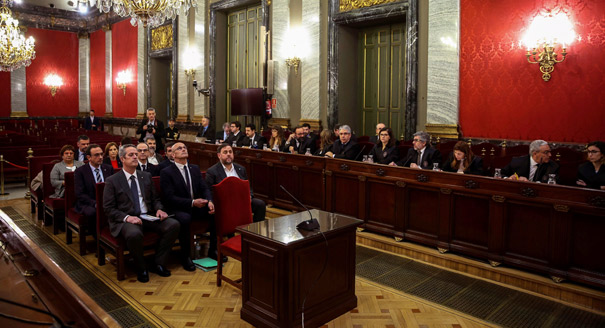At the end of June, Russia’s upper and lower houses of parliament approved the “Yarovaya laws,” a controversial package of legislative amendments that Edward Snowden has called “an unworkable, unjustifiable violation of rights.” Named for its co-author, State Duma MP Irina Yarovaya, the package will undermine the core principles of Russian criminal law.
The section of the bill that amends the Criminal Code is nonsensical and brazenly repressive, even compared to other recent retrograde legislation. It makes “failure to report a crime” a criminal offense; any individual who becomes aware of “reliable information” about plans to carry out an act of terrorism, armed mutiny, or any of a dozen other crimes and does not notify the authorities will face up to a year in prison.
The package also significantly expands the list of offenses for which minors starting at the age of fourteen can be held criminally responsible.
What’s more, the legislation significantly increases the already stiff penalties for committing “extremist crimes.” Organizing an extremist community, which was previously punishable by a fine of up to 200,000 rubles, now carries a sentence of two to six years in prison. The minimum sentence for violating the infamous Article 282 of the Criminal Code (incitement of hatred) has been increased to two years.
If these amendments come into force, prison sentences for certain non-violent “extremist” crimes will potentially be twice as long as, for example, murder committed in the heat of passion, which carries a maximum sentence of three years.
Despite receiving nearly unanimous support in parliament, the Yarovaya laws have triggered a flood of apocalyptic commentary. Many wonder why Russia’s already excessively harsh criminal laws are being made harsher.
The only official criticism of the legislation, however, has come from the Presidential Human Rights Council, which has highlighted ways in which the proposed amendments directly contradict the Constitution and existing laws. This criticism has been almost entirely ignored.
The Duma has already passed a number of laws that have harshened Russian law in the name of fighting terrorism and extremism. It criminalized “public calls for the violation of territorial integrity” and “rehabilitation of Nazism,” a direct affront to the freedom of speech. In 2013, it passed a law that allowed the state to confiscate property from individuals affiliated with terrorists, including their relatives.
The government has long used the “fight against terrorism and extremism” to justify repressive laws, no matter how obviously senseless they may be. As a result, Russia’s statutory framework can now be effectively used to target not only credible extremist threats, but also political opponents of the state. A large group of prominent Russian lawyers decried this problem in an open letter in 2013, saying that the “parliament’s legislative work has acquired a distinctly prohibitive and repressive character.”
The laws have been very effective in depoliticizing the Russian population. The copious prohibitions contained in the legislation inundate citizens, suppressing their political activity and forcing them into self-censorship and social passivity. This is less a result of the substance and severity of the new prohibitions than of their number and scope.
Formally, the Yarovaya amendments change very little in criminal law. Underage terrorists could already be punished for violent acts according to general articles in the Criminal Code (murder is a criminal offense for minors starting at the age of fourteen). The new article on international terrorism will not make much of a difference either, as there was already an article in the Criminal Code that addressed terrorist acts. The harsher sentences likewise will make little difference in the application of the law, which we can expect to remain equally selective. Nor should we expect a chorus of informants as a result of the amendment criminalizing the failure to report a crime.
In all likelihood, the next session of the Duma will soften the Yarovaya package. Still, the political activity of citizens will be further hindered, primarily as a result of the growing unpredictability of criminal law.
Most importantly, however, the amendments undermine core principles of criminal law and do away with norms against rewriting the Criminal Code. The proposed amendments erode the criminal law that an entire generation of Russian lawyers has come to know and practice. With key principles of the Criminal Code stripped bare—principles such as the inability to hold someone criminally responsible for their thoughts and beliefs and the primacy of individual rights—legal textbooks will soon have to be rewritten.
This amounts to a creeping revival of a number of notorious Soviet legal principles, including the ability to hold people criminally responsible for withholding information.
The distinguished German lawyer Franz von Liszt once described criminal law as “the bulwark of the citizen against the state’s omnipotence.” With the introduction of the Yarovaya laws, the Criminal Code will be anything but a bulwark. Despite this alarming symptom of the degradation of the rule of law, politicians and lawyers alike remain unconcerned, seemingly viewing criminal law as nonessential.



